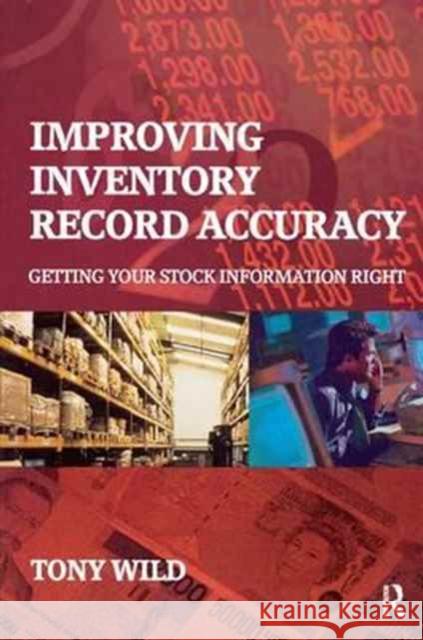Improving Inventory Record Accuracy: Getting Your Stock Information Right » książka
Improving Inventory Record Accuracy: Getting Your Stock Information Right
ISBN-13: 9781138159709 / Angielski / Twarda / 2017 / 144 str.
Record accuracy has become the focus of attention for many businesses because customers have higher expectations of the right item being delivered on time, and competitive pressures do not allow for extra stockholding. Businesses now have the opportunity to become much more effective given the correct information, the development of better communication and integration of systems. For inventory management, the pressure for most companies is to become more efficient and hold less inventory.
The accuracy of data has gradually been emerging in importance. The systems only work if the data is correct and with the introduction of integrated data, there are wide ranging repercussions for businesses that draw conclusions and make decisions based on inaccurate records.
Where there is a lot of data, there is the opportunity for many and large errors. This is often the case with inventory: many items, large varieties of different items, and fast changing inventory. Measuring how much there is becomes a challenge in many businesses such as consumer retailing and manufacturing processes where inventory changes so rapidly. With large warehouses there is also the risk of inaccurate recording so that items are not there or not in the right place.
Improving Inventory Record Accuracy initially discusses how to quantify the problem, set sensible targets for improvement and how to make the case for doing something to improve accuracy. The book then discusses why inventory records do go wrong and how to rectify the major causes of error. Finally the book illustrates the techniques with which everyone can make their records very accurate.
This is a practical book that solves a practical problem and shows the ways to improve record accuracy. Tony Wild has amassed many techniques over the years, has tried them out in practice and he presents them here in an accessible style for professional managers in logistics and stock control, retail/wholesale distribution. The book is also intended for use by students on Institute of Operations Management Certificate, DPIM, CPIM and DLM courses.











